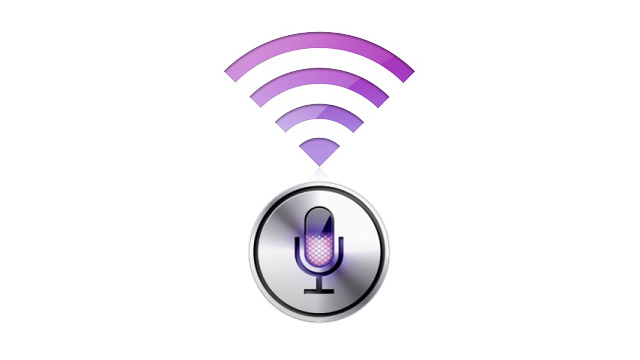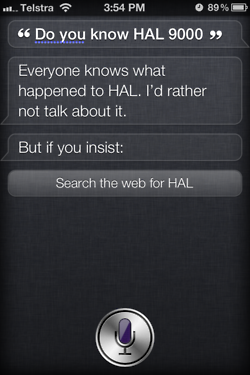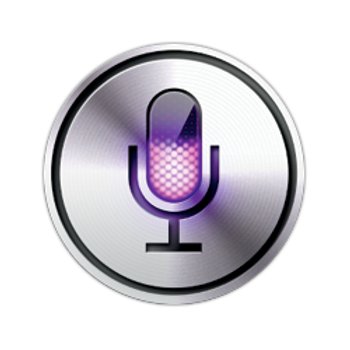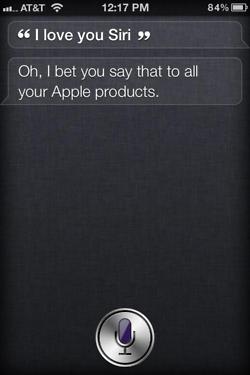
When Apple introduced to the world the iPhone 4S, many were amazed with the technology that brought Siri to the device, since their functionality made it seem like a personal assistant always ready for our orders on the device.
To understand better how Siri works it’s important to know that a Voice User Interface (VUI) is what a person interacts with when communicating with a spoken language application. The elements of a VUI includes prompts, grammars, and dialog logic . The prompts, or system messages, are all the recordings or synthesized speech played to the user during the dialog. Grammars define the possible things callers can say in response to each prompt. The system can only understand those words, sentences, or phrases that are included in the grammar. The dialog logic defines the actions taken by the system, for example, responding to what the caller has just said or reading out information retrieved from a database.
In this application, a voice actor has prerecorded everything the system says. Following the prompt the system listens, using a grammar that accommodates inputs from the caller. The dialog logic will then decide what to do next, depending on the answer. If the dialog succeeds, the system will provide the desired information.
However, just as there were many who were delighted with that offered by Siri, there were others who felt cheated, so to speak, unable to find the features promised by Apple in their ads, promoting the capabilities of Siri. One such case, the most famous, of course, was Frank Fazio, who in March filed a complaint against Apple because Siri did not fulfill orders efficiently such as take notes or look for the guitar chords of a song, justas was shown in the ads, which were syndicated as « false and misleading ».
And now Apple has submitted its response to those allegations in a motion to refuse, saying that the actions brought only « offer general descriptions of the ads from Apple,incomplete summaries of the material from the Apple website, and vague descriptions of his alleged -and highly individualized, disappointments with Siri « .
Apple also proposes that if these people are not happy with the system of Siri found on the iPhone 4S, may choose to buy any other phone that meets your needs. Even the company reminds customers that they can use their product return policy if they are not happy with it, within a reasonable period of one month, without any objection. So Apple is surprised because the plaintiffs did not exercise that right, if the performance did not meet their expectations Siri ‘as soon’ as bought the iPhone 4S.
Users also might be concerned with what Siri knows about them or how it might use that information behind their back.
To facilitate and improve the functionality of Siri, though, Apple retains the queries for some undefined period of time. The iPhone Software License Agreement states, “When you use Siri or Dictation, the things you say will be recorded and sent to Apple in order to convert what you say into text and, for Siri, to also process your requests.”
Of course, the agreement also goes on to say that other information is sent to Apple as well, such as the users’s name, the songs in their music collection, and the names and relationships of their contact database. It says, “All of this data is used to help Siri and Dictation understand you better and recognize what you say.”
 Using query data to boost the service is not new, and Apple it’s not the only one who does it (Google also collects and stores data with the objective of refine and improve its search capabilities). The more this companies can monitor browsing activities, the more accurately it can target interests and deliver a more customized experience.
Using query data to boost the service is not new, and Apple it’s not the only one who does it (Google also collects and stores data with the objective of refine and improve its search capabilities). The more this companies can monitor browsing activities, the more accurately it can target interests and deliver a more customized experience.
On the other hand, I’m sure some of you’ve heard of the Turing Test, invented by the British code-breaker, mathematician and computing pioneer Alan Turing: an early, pragmatic suggestion for determining whether or not computers have intelligence. In it, a human judge would attempt to determine, from a conversation (usually text-based), whether they are talking to a human or a computer. If they cannot reliably judge, then the machine, to all intents and purposes, can be considered to be intelligent.
I’m not suggesting that the iPhone 4S is actually anywhere near that. But it is, on the evidence of the advert, the closest of anything we’ve ever seen; it’s the first real-life computer to give us the Uncanny Valley effect (hypothesis in the field of robotics, which holds that when human replicas look and act almost, like actual human beings, it causes a response of revulsion among human observers) just by talking. You can’t help but wonder, while watching it, how long it will be before it says, with chilling calm, « I’m sorry Julio. I’m afraid I can’t do that« . We’re living in the future, and I have to admit I’m a little bit scared of it. What about you?
Sources:
http://ldt.stanford.edu/~ejbailey/02_FALL/ED_147X/Readings/CohenExcerpt.Winograd.pdf
http://www.bgr.com/2012/05/17/apple-siri-lawsuit-beta-performance/
http://rick.bookstaber.com/2011/10/iphone-siri-and-turing-test.html
http://www.pcworld.com/article/256253/is_siri_spying_on_you.html


4 réponses à “Siri, are you going to take over the world?”
I’m not very frightened by the machines, especially when you know that Siri doesn’t understand certain accents:
http://youtu.be/SGxKhUuZ0Rc
I have been trying to use Siri few times, and I can understand why you are frightened. Although its ability to open or use most applications is limited, probably in the iPhone5 they will improve Siri’s options, so it will be more useful.
Even though, I need to admit, for me, it is programmed to give « her » as much data as possible. Meaning at the very beginning, when I discovered Siri on my iPhone 4S I wanted to check what it can do. After few « easy » questions, I started asking more complex ones, such as » where do you come from? », etc. To my surprise it is programmed to answer. Asking « her » about more personal questions concerning myself, it tell you I don’t know, but if you’ll tell me I will remember. So you keep trying if it’s true. Most of us don’t realise that this personal information is used by Apple. Where we can honestly say that product improvement stops and invigilation starts?
I also have an Iphone 4s but I haven’t really found siri useful for me, I think I don’t know how to use it very well, or I’m just not used to such technology. This is one of the reasons why I decided to read Julio’s article, I’m curious of what siri really provides and how to use it correctly and make it useful.
I hadn’t really thought about the privacy implications siri has nor knew how it really works with storage of our questions and « getting to know us » as if we were friends!
I don’t know either how and what can apple do with all our information, do they just store it? sell it? divulge it? use it for studies? store it and then throw it away? use it just for making siri work better and in turn the service the cellphone is proving to us?
I really want to know… should I continue ignoring my siri or start builiding a friendship with it?
Unfortunately, Siri works well only in the USA. In Europe, it’s worse. Perhaps this is related to the fact that Apple no longer uses maps from Google